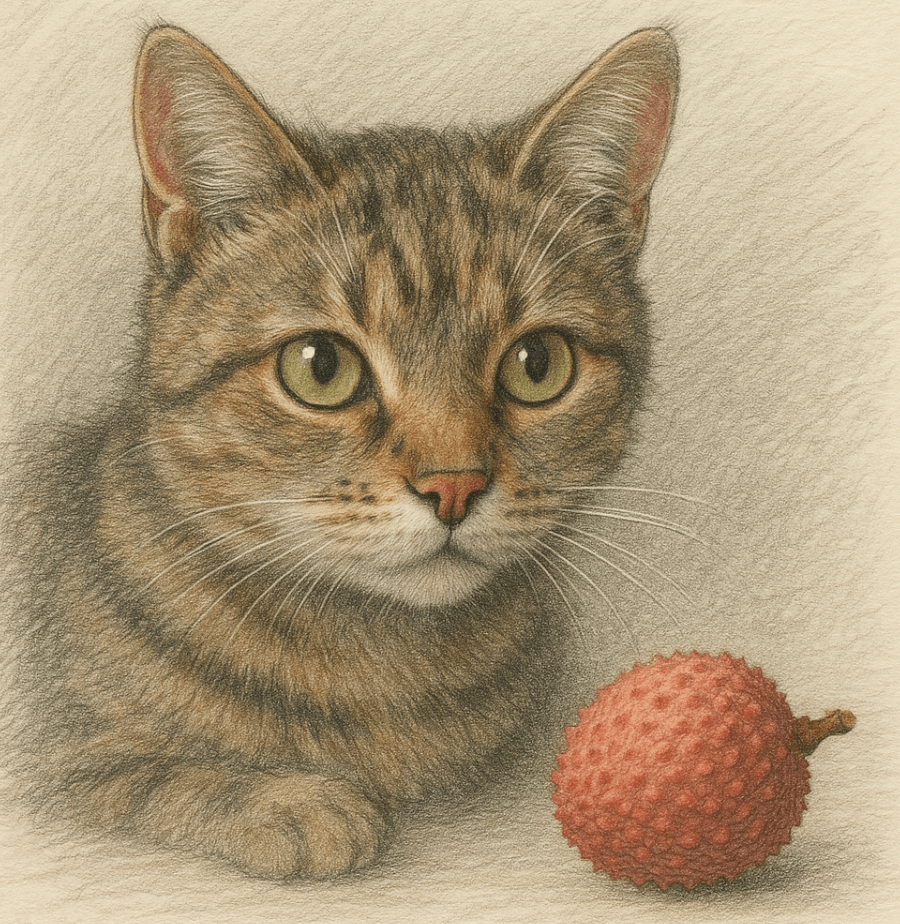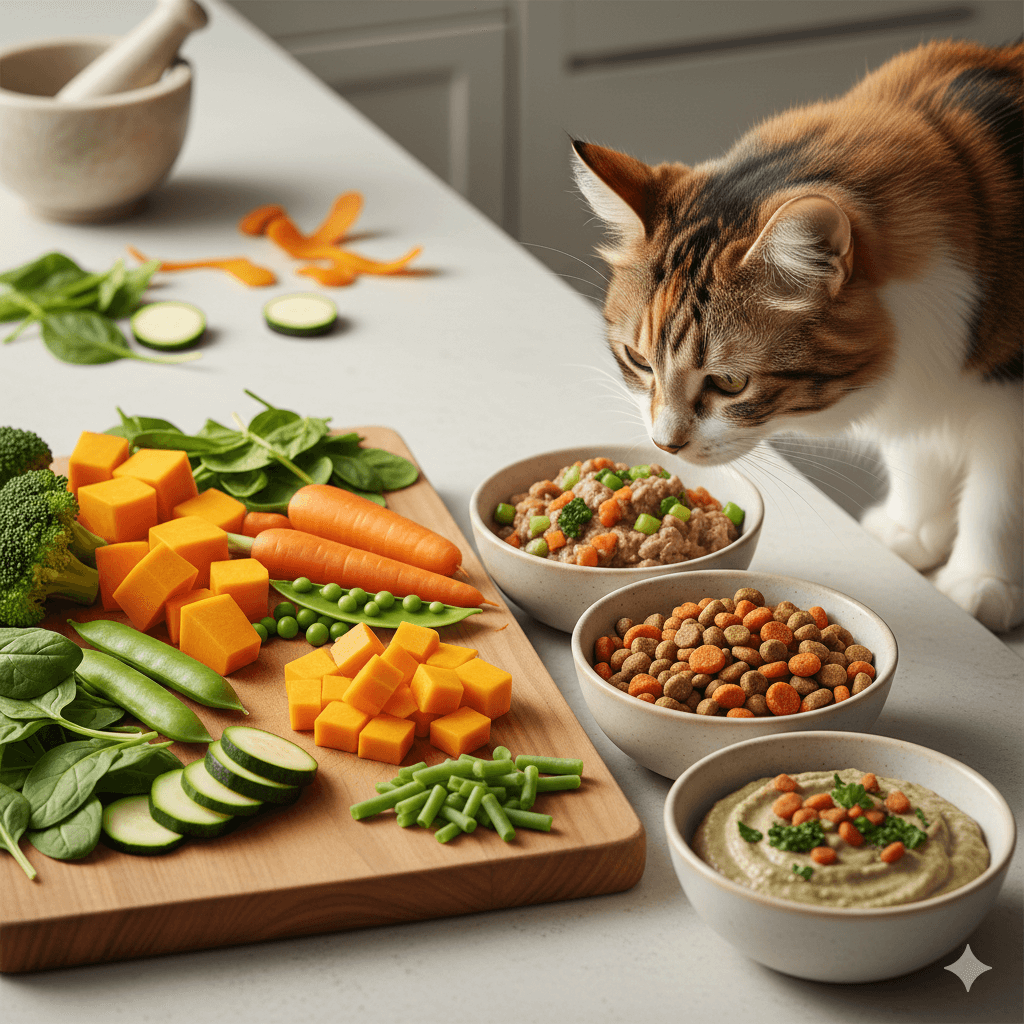Can Cats Eat Lychee?
When it comes to feeding our feline friends, many pet owners wonder whether exotic fruits like lychee are safe for cats. Lychee, with its sweet and juicy flesh, is a popular treat for humans, but can cats enjoy this tropical delight too? While cats are obligate carnivores and don’t require fruit in their diet, some fruits can be given as occasional treats in moderation. However, not all human foods are safe for cats, and understanding the risks and benefits of feeding lychee is crucial. In this blog post, we’ll explore everything you need to know about cats and lychee, including potential dangers, safe preparation tips, and healthier alternatives.
Potential Risks of Feeding Lychee to Cats
While lychee may seem harmless, there are several risks associated with feeding it to your cat. Understanding these dangers will help you make an informed decision about whether to share this fruit with your feline friend.
High Sugar Content:
Lychee contains natural sugars that can upset your cat’s digestive system and lead to issues like diarrhea or vomiting.Choking Hazard from Seeds:
The large, hard seed inside lychee poses a choking risk if swallowed whole or improperly chewed.Toxic Compounds in the Skin:
The outer skin of lychee contains substances that may irritate your cat’s stomach or cause allergic reactions.Risk of Allergic Reactions:
Some cats may develop mild to severe allergic responses after consuming lychee, such as itching or swelling.Digestive Upset from Overconsumption:
Even small amounts of lychee can cause bloating, gas, or discomfort due to its high fiber content.
These risks highlight why caution is essential when considering lychee as a treat for your cat. Always prioritize their safety over curiosity.
Benefits of Feeding Lychee (In Moderation)
While lychee isn’t a necessary part of a cat’s diet, it does offer some minor benefits if given sparingly and prepared correctly. These advantages should be weighed against the potential risks.
Hydration Boost:
Lychee has a high water content, which can help keep your cat hydrated, especially during hot weather.Vitamin C Content:
Although cats don’t require Vitamin C from their diet, the antioxidants in lychee may support overall health in small amounts.Low Calorie Treat Option:
A tiny piece of lychee can serve as a low-calorie snack for cats who need to watch their weight.Mental Stimulation:
Introducing new textures and flavors can provide mental enrichment and satisfy your cat’s curiosity.Encourages Healthy Exploration:
Allowing your cat to try small, safe portions of new foods can foster a positive relationship with mealtime.
While these benefits exist, they must be balanced against the potential downsides to ensure your cat’s well-being.
Check this guide 👉Can Cats Eat Durian? Best 7 Expert Tips!
Check this guide 👉Can Cats Eat Granola? Best 7 Expert Tips!
Check this guide 👉Can Cats Eat Wasabi? Best 7 Expert Tips!

Safe Alternatives to Lychee | Risks of Unsafe Fruit Choices |
|---|---|
Blueberries (rich in antioxidants) | Grapes (toxic to cats and dogs) |
Watermelon (seedless and cut small) | Citrus fruits (high acidity) |
Apples (without seeds or core) | Avocado (contains persin, toxic) |
Bananas (in very small amounts) | Cherries (contain cyanide compounds) |
Cantaloupe (high in water content) | Pineapple (too acidic for cats) |
How to Safely Feed Lychee to Your Cat
If you decide to give your cat a taste of lychee, it’s essential to take precautions to minimize risks. Follow these guidelines to ensure a safe experience.
Remove the Seed Completely:
Always discard the large seed to prevent choking or intestinal blockages.Peel the Skin Thoroughly:
The outer skin should be removed entirely, as it can irritate your cat’s digestive system.Offer Tiny Portions Only:
Limit the serving size to a small piece no larger than the tip of your pinky finger.Monitor for Reactions:
Watch your cat closely after they eat lychee to check for signs of digestive upset or allergies.Consult Your Veterinarian First:
Seek advice from your vet before introducing any new food to your cat’s diet.
By following these steps, you can mitigate risks while allowing your cat to explore new flavors safely.
Signs Your Cat May Be Struggling with Lychee Consumption
Even with precautions, complications can arise if your cat consumes lychee improperly. Watch for these warning signs to act quickly if something goes wrong.
Vomiting or Diarrhea:
These symptoms may indicate that your cat’s digestive system is struggling to process lychee.Lethargy or Weakness:
A sudden lack of energy could signal dehydration or an adverse reaction to the fruit.Difficulty Breathing:
Swelling of the throat or mouth may occur if your cat has an allergic reaction to lychee.Pawing at the Mouth:
This behavior often indicates irritation caused by the fruit’s skin or seed fragments.Loss of Appetite:
If your cat refuses to eat after consuming lychee, it may be experiencing discomfort or illness.
Recognizing these signs early allows you to seek veterinary care promptly, preventing further complications.
Common Mistakes to Avoid When Feeding Fruits to Cats
Feeding fruits to cats requires careful consideration to avoid mistakes that could endanger their health. Here are some pitfalls to watch out for.
Assuming All Fruits Are Safe:
Many fruits, like grapes and cherries, are toxic to cats and should never be offered.Ignoring Portion Sizes:
Even safe fruits can cause digestive issues if given in large quantities. Stick to tiny portions.Leaving Seeds or Pits Intact:
Seeds and pits can pose choking hazards or release harmful toxins if ingested.Overlooking Allergies:
Some cats may have sensitivities to certain fruits; always introduce new foods gradually.Forgetting to Consult a Vet:
Skipping professional advice can result in unknowingly harming your cat with inappropriate food choices.
Avoiding these mistakes ensures a safer and healthier experience for your cat.
Alternatives That Mimic the Sweetness of Lychee
If you’re hesitant about feeding lychee, there are plenty of alternatives that mimic its sweetness without the associated risks.
Blueberries:
These antioxidant-rich berries are small, easy to serve, and loved by many cats.Seedless Watermelon:
Cut into bite-sized pieces, watermelon provides hydration and a refreshing taste.Apples (Without Seeds):
Apples are mildly sweet and packed with fiber, making them a great occasional treat.Banana (In Small Amounts):
A tiny slice of banana can satisfy your cat’s craving for something sweet.Cantaloupe:
Its juicy texture and mild flavor appeal to some cats, offering a hydrating snack option.
These alternatives allow you to cater to your cat’s curiosity while keeping them safe.
Understanding Your Cat’s Natural Instincts Around New Foods
Cats are naturally cautious about trying unfamiliar foods, but their curiosity can sometimes override their instincts. Understanding their behavior helps explain their reactions to new tastes like lychee.
Selective Eating Habits:
As obligate carnivores, cats prefer protein-rich foods over plant-based options like fruit.Exploration Through Smell:
Cats rely heavily on scent to determine whether a food is worth investigating further.Limited Taste Buds:
Cats have fewer taste buds than humans, so they may not perceive sweetness as strongly as we do.Playful Curiosity:
Some cats may bat or paw at new foods purely out of curiosity, even if they don’t intend to eat them.Trust in Familiarity:
Cats feel most comfortable with foods they recognize, so introducing new items slowly builds trust.
By recognizing these behaviors, you can better address your cat’s needs in a safe and controlled manner.
Frequently Asked Questions About Cats and Lychee
Is lychee toxic to cats?
While not highly toxic, lychee can cause digestive upset, choking hazards, or allergic reactions in cats.
Can kittens eat lychee?
Kittens have sensitive digestive systems and should avoid lychee altogether to prevent complications.
How much lychee is safe for cats?
At most, a tiny piece no larger than the tip of your pinky finger is safe, and only occasionally.
What should I do if my cat eats a lychee seed?
Contact your veterinarian immediately to assess the risk of choking or intestinal blockage.
Are there safer fruits for cats?
Yes, blueberries, watermelon (seedless), and apples (without seeds) are better options for feline snacks.
Prioritizing Your Cat’s Health When It Comes to Lychee
Feeding lychee to your cat can be tempting, especially if they show interest in your snacks. However, cats are obligate carnivores, meaning their nutritional needs are best met through meat-based diets rather than fruits. While lychee isn’t inherently toxic, it poses significant risks that outweigh its minimal benefits. By understanding the potential dangers, choosing safer alternatives, and consulting your veterinarian, you can ensure your cat stays healthy and happy. Remember, your feline friend relies on you to make the best dietary choices for them—so always prioritize their well-being above all else.
Can a Cat Be Tested for Rabies? Best 7 Expert Tips! – Learn if testing is possible, understand the process, and discover prevention tips to keep your cat safe from rabies.
Can a Dog Be Tested for Rabies? Best 7 Expert Tips! – Learn how rabies testing works, why it’s critical, and what every dog owner needs to know.
Best Vegetables for Cat Food: Best 7 Expert Tips! – Discover safe, nutritious veggies to boost your cat’s diet, support digestion, and enhance overall health naturally.
Best Vegetables for Dog Food: Best 7 Expert Tips! – Discover safe, nutritious veggies to boost your dog’s diet, support digestion, and enhance overall health naturally.




